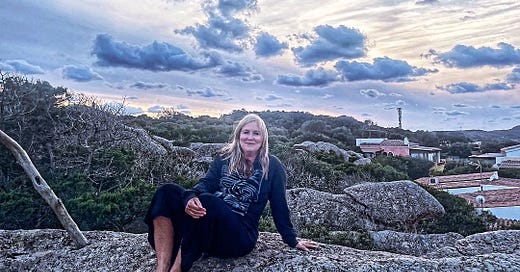When the journey's nature is to end expectations.
Sorry for my absence while life knocked me sideways.
I’m sitting at the Dublin airport pre-clearance gate, waiting to board the airplane that will take us back to the USA. During the last month we’ve been in France, Italy, and the UK, I stopped being able to write this newsletter. I thought about this wonderful, supportive community, yet I was only able to experience what was happening. I couldn’t post be…
Keep reading with a 7-day free trial
Subscribe to Wanderland to keep reading this post and get 7 days of free access to the full post archives.



